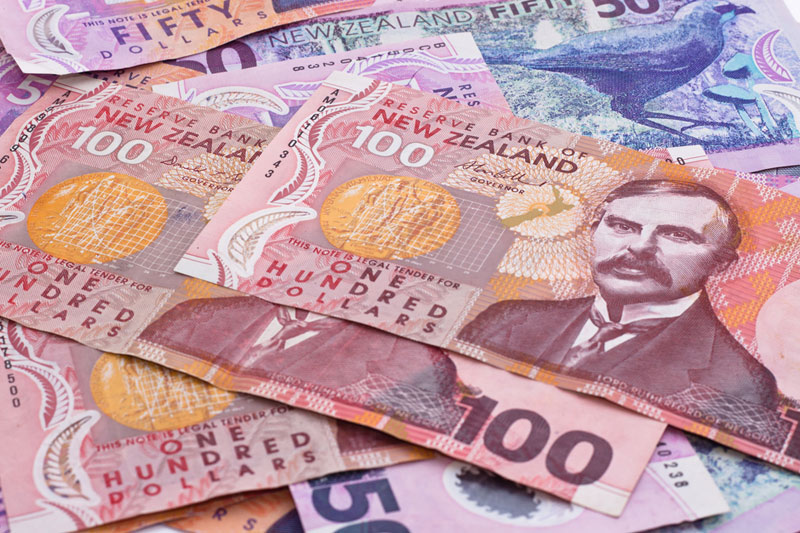Investing.com - The New Zealand dollar jumped on Thursday after the central bank hiked interest rates as expected.
NZD/USD traded at 0.8608, up 0.86%, after the Reserve Bank of New Zealand hiked its Official Cash Rate 25 basis points to 3.25%, projecting a slightly more gradual run of increases than anticipated in March because of the strong currency.
The high exchange rate is still having an unexpectedly strong downward pressure on inflation, Reserve Bank governor Graeme Wheeler said Thursday. "Headline inflation remains moderate and tradable inflation is expected to be low for some time," he said.
In Australia, employment data for May is due at at 1130 Sydney (0130 GMT) with the number of jobs added seen up by 10,000, a particpation rate at 64.7% and the unemployment rate at 5.9%.
Australia also sees MI Inflation Expectations for June a half hour earlier.
AUD/USD traded at 0.9380, down 0.02%.
Japanese data sees machine tool orders for April, which are expected to show an 11.9% drop, after a 19.1% jump in March.
USD/JPY traded at 101.99, down 0.08%.
Overnight, the pound moved higher against the dollar after data revealed fewer individuals received unemployment assistance in May than markets were anticipating.
The claimant count, or number of people receiving jobless benefits fell by 27,400 in May, beating for a for a decline of 25,000 people. April’s figure was revised to a drop of 28,400 from 25,100.
The data added to the view that the Bank of England will raise interest rates ahead of other central banks as the economic recovery continues to gather momentum, which gave the pound an edge over the greenback.
GBP/USD traded at 1.6789, up 0.01%.
Meanwhile in the U.S., Treasury yields continued to climb on Wednesday, though they came off earlier highs, as markets prepped for the possibility that the Federal Reserve may hike interest rates sooner than once expected.
Fed officials have said rate hikes will come sometime after the U.S. central bank concludes its bond-buying program, which is seen taking place this year.
However, uncertainty as to how much time will elapse between the end of Fed stimulus programs and a decision to raise benchmark interest rates boosted the dollar over the euro, as many feel the economy continues to shake off the dust from rough winter weather and pick up its pace of recovery, which could prompt the U.S. central bank to act.
On Thursday, the U.S. is to release the weekly report on initial jobless claims, in addition to data on retail sales and import prices.
Bank of England Governor Mark Carney is to speak at an event in London.
